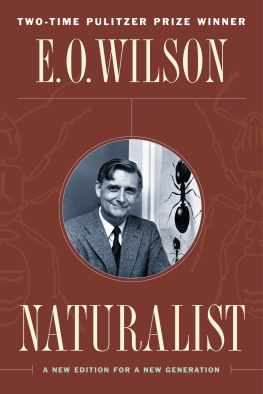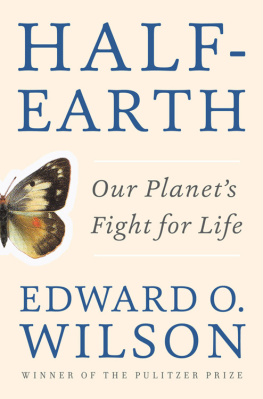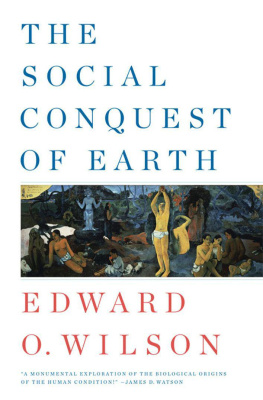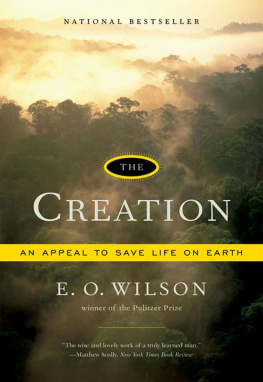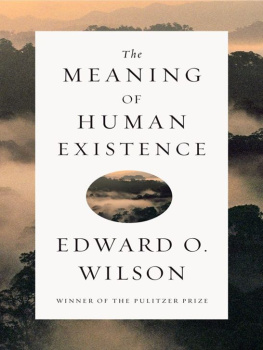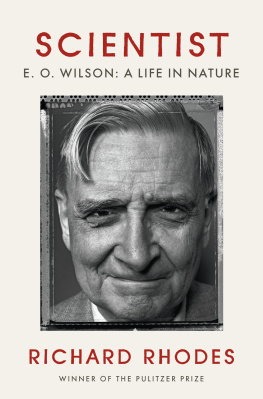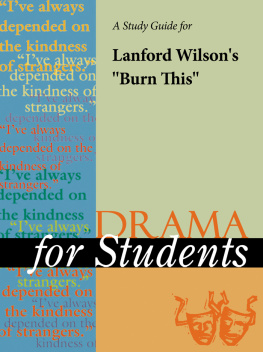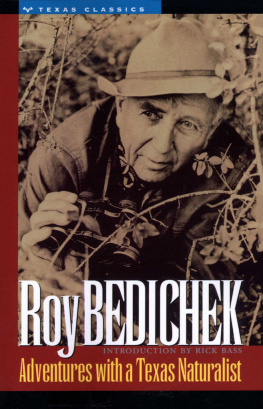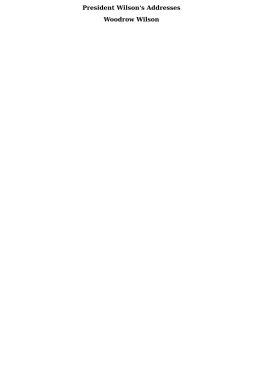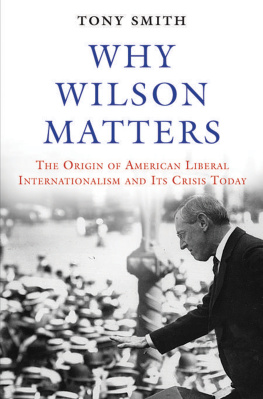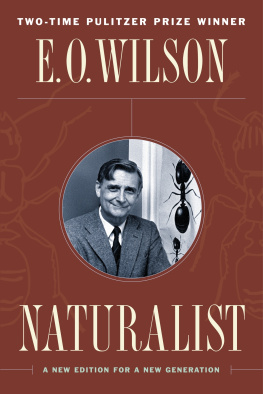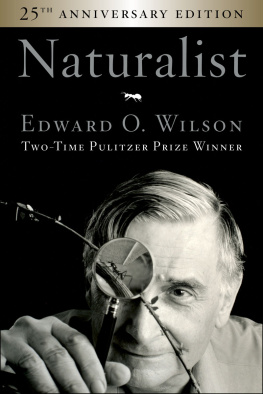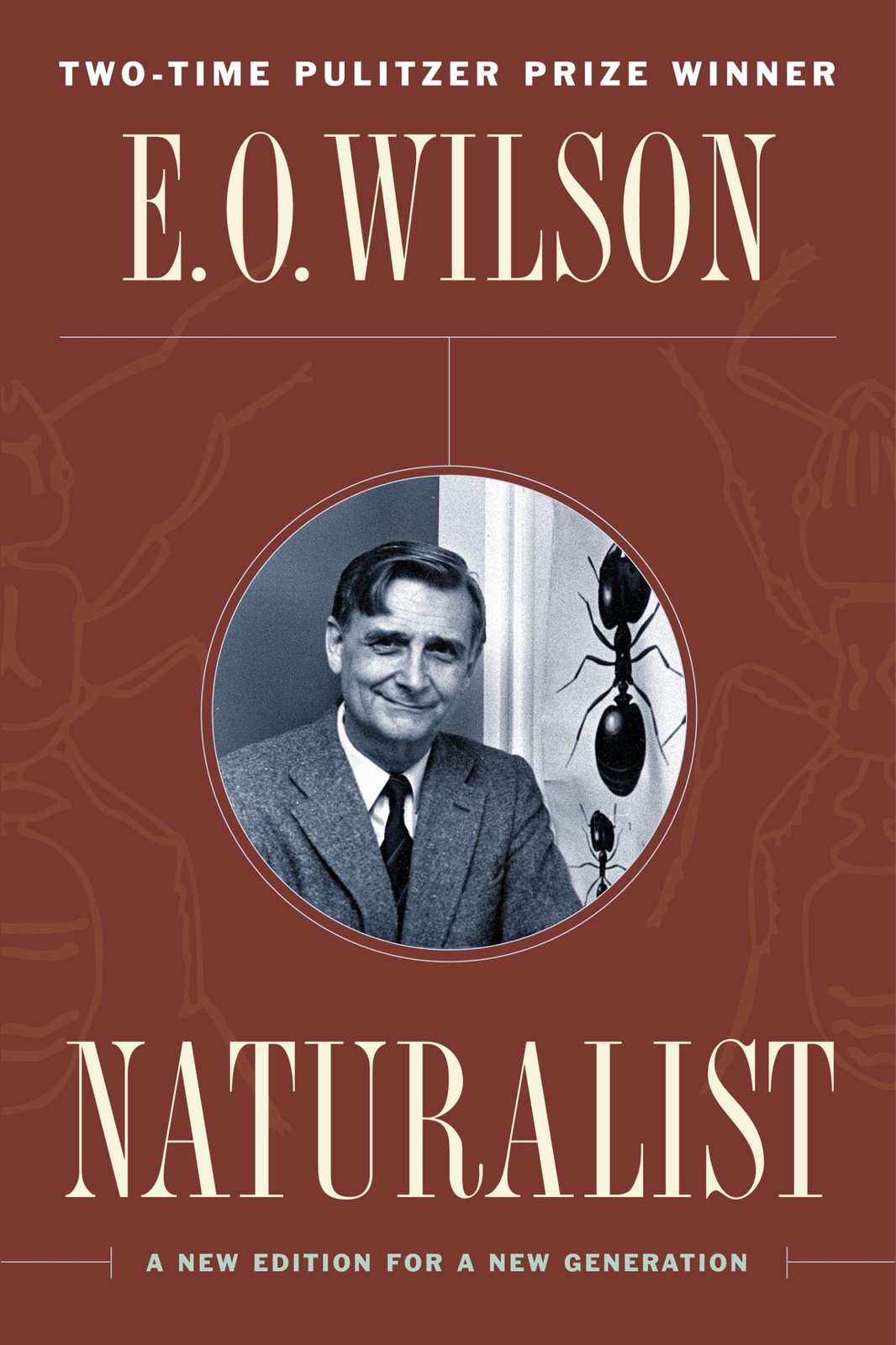acknowledgments
I am indebted to a number of persons for important assistance in reconstructing the events of my early childhood. They were, in Biloxi and Gulfport, Mississippi, William B. Carlin II; Edward B. Kitchens, Brigadier General (Ret.); and Murella Powell; in Pensacola, Florida, Frank Hardy, Sr., Barbara McVoy, and Patricia Shoemaker; and in Washington, D.C., Ellis G. MacLeod. I obtained some details of my ancestry from Elizabeth Wilson Covan, our familys genealogist; my mother, Inez Linnette Huddleston; and William M. P. Dunne, professor at the State University of New York, Stony Brook, and an expert on the history of Gulf Coast pilotage. Life at the University of Alabama and Harvard University during my student years was reconstructed with the aid of information from my friends William L. Brown and Thomas Eisner; from Joyce Lamont, librarian at the University of Alabama; and from Aaron J. Sharp, my mentor at the University of Tennessee, who helped me gain admission to Harvard.
I am also grateful to the following friends and colleagues for reading portions of the manuscript and generously providing help and advice: Alexander Alland, Jr. , Gary D. Alpert, Stuart Altmann, George E. Ball, George W. Barlow, Herbert T Boschung, Napoleon Chagnon, Franklin L. Ford, Stephen Jay Gould, William D. Hamilton, Bert Hlldobler, Robert L. Jeanne, Ernst Mayr, Basil G. Nafpaktitis, William Patrick, Reed Rollins, Ullica Segerstrle, Daniel Simberloff, Lawrence B. Slobodkin, Frederick E. Smith, Kenneth Thimann, Robert L. Trivers, Barry D. Valentine, and James D. Watson. My wife Irene (Renee) discussed the work in progress and provided help and encouragement throughout. John P. Scott sent background materials on the earliest days of sociobiology, while Michael Ruse provided wise counsel and advice over the years that enriched my perception of the sociobiology controversy. None of these consultants, of course, is in any way responsible for errors of fact that may have survived, or for my interpretations.
The service at Pensacolas First Baptist Church in 1943 described in Chapter 3 is a composite pieced together, respectfully and I trust without distortion, from my fifty-year-old memories, from conversations with my fellow member (still active) Barbara McVoy, and from On the Bay-On the Hill, a history of the Pensacola church by Toni Moore Clevenger and a 1986 publication of the First Baptist Church, Pensacola.
The portion of Langston Hughess poem Daybreak in Alabama that opens Part I is from Selected Poems of Langston Hughes (New York: Alfred A. Knopf, 1959) and is reprinted by permission of the publisher. My account of the capture of the cottonmouth moccasin (Chapter 6), together with the reconstruction of early conversations on island biogeography with Robert MacArthur and the description of MacArthurs personality (Chapter 13), is taken with slight modification from Biophilia (Cambridge, Mass.: Harvard University Press, 1984). The summary of Konrad Lorenzs 1953 lecture at Harvard (Chapter 15) is based upon an imperfect memory. I may have combined my recollections with some details from reading and discussion conducted soon afterward, but the spirit and main themes I believe to be accurate.
As for all my books in the past, back to The Theory of Island Biogeography with Robert MacArthur in 1967, I am grateful to Kathleen M. Horton for her invaluable editorial assistance and advice.
afterword
FOR EACH OF US, INBORN PROPENSITIES OF TEMPERAMENT AND talent screen childhood experience and weave the pattern of the adult mind. Through the twists and turns of my own development, I ended up a naturalist and made the practical decision to earn my living by research and teaching. Since then I have had many adventures, both those faithfully described in Naturalist and others, but none have altered me at the core. While more competent and cautious perhaps, and mercifully less roiled by passions, I remain the boy I was when my love of nature was awakened and the world beguiled me into thinking I could make something of my life.
For six decades, through my college student years and my later professional life, I have dwelled in basic science, and in particular my natural habitat of systematics, biogeography, evolutionary theory, ecology, and sociobiology, which all together I like to think of as scientific natural history. Halfway through this career I added nonfiction writing, because I had a talent for it, because well-wrought English prose had always inspired me, more even than music, and because I remained haunted by the cadences of the King James Bible and evangelical sermons of my childhood. A Southern writer had lived inside the biologist, growing impatient for release.
Would I have been as fulfilled had I taken up creative writing in college and only later turned to science for material? Perhaps, but I doubt it. I am now convinced that it is better to work from science into literature than to try the reverse, although many have done so with distinction. To understand the scientific culture deeply and, even more, to express the emotions that attend scientific exploration require that the writer inhabit science for a substantial part of his life, intent upon making important discoveries and placing them within the canon.
In the early 1970s I was summoned by a third altar call, so to speak. Earths biodiversity, the Creation, which even as a secularist I regard with a spiritual reverence, is disappearing. Countless millions of years of evolution are being wiped out by the ignorant excesses of humankind. Biologists who most understand biodiversity and the causes of its peril should of all people, I felt, step forward in order to help save it.
In July 1994, the year Naturalist appeared, I was appointed Pellegrino University Professor, one of only fifteen university-wide professorships at Harvard University, intended to provide maximum latitude in teaching, although in fact I continued very much the same activities as before. I retired three years later, at the age of sixty-eight, in order to end teaching and administrative duties completely. I didnt have to quit: Harvards mandatory age cap had been lifted by federal mandate. My wish was to turn more fully to research and writing, as well as to conservation activism. But, I confess, a deeper, more emotional reason for retiring was to shed a burden I had felt too long, that of juggling research and teaching in an effort to reach at least satisfactory achievement in both. A few years thereafter, at the 2004 spring commencement, I was awarded an honorary doctorate, a rare honor at Harvard, which grants only one such degree to a superannuated member of its own faculty on average every year or two. Because I had struggled much at this university, I felt deeply gratified by the double shoulder sword-touch.
Upon retirement, I was able to tip the balance toward research without dereliction of other duties and to intensify my efforts in global biodiversity conservation. Having served on the boards of The Nature Conservancy and the World Wildlife Fund, and as a chief advisor to the New York Botanical Garden, I now focused my efforts on Conservation International, the youngest and in my view the most innovative member of the global conservation community. I was especially attracted by the two relatively young leaders of this organization: Russell Mittermeier, a distinguished conservation biologist and primate expert of seemingly infinite energy, and Peter Seligmann, a genius at organizing such an enterprise, articulating a compelling vision of conservation thereby, and not least, fund-raising. Conservation International has pioneered in finding new ways to establish and secure reserves in tropical, biodiversity-rich countries while promoting economic development in the surrounding regions.

